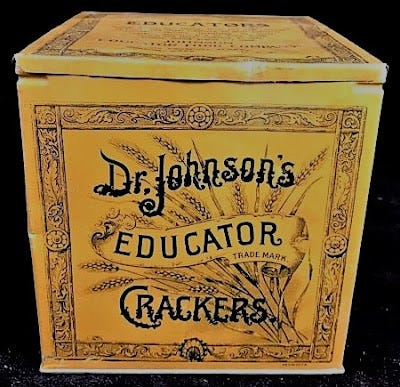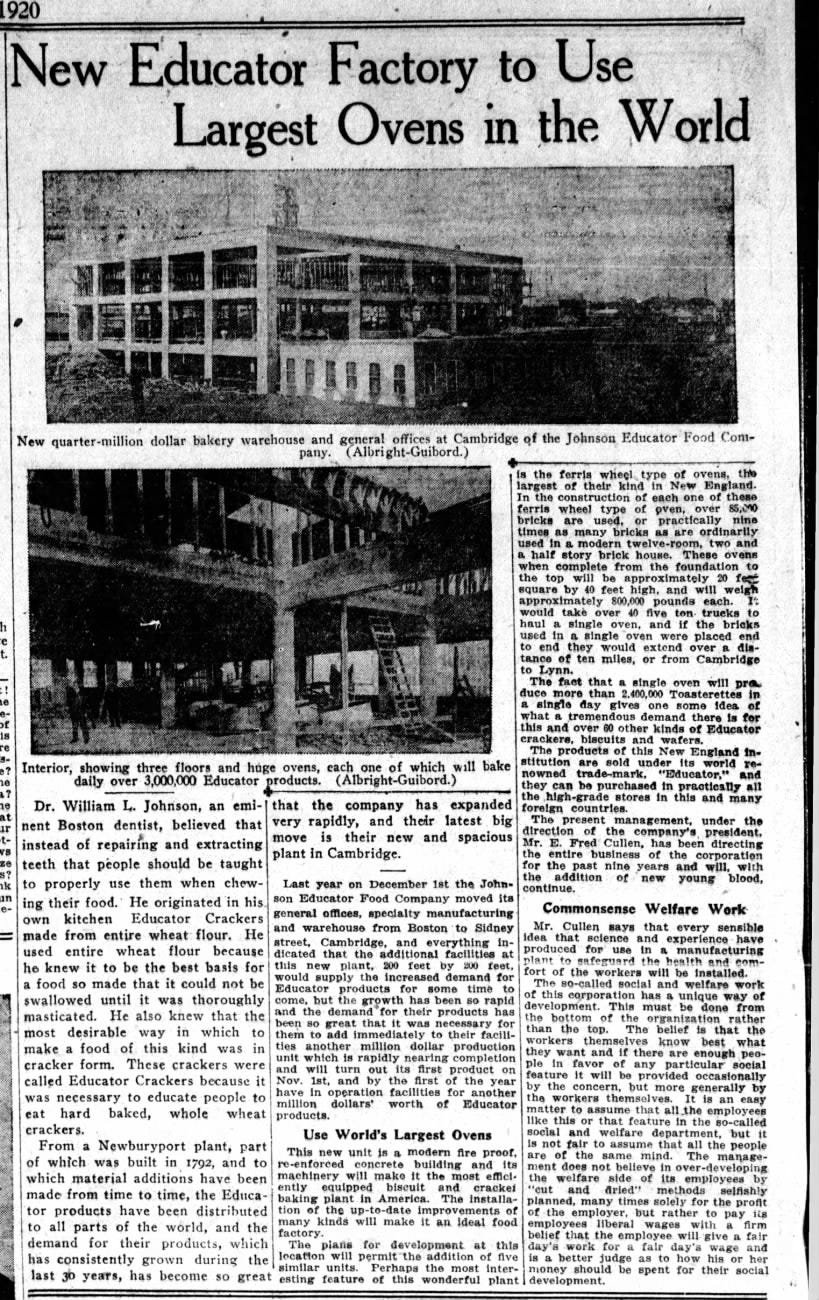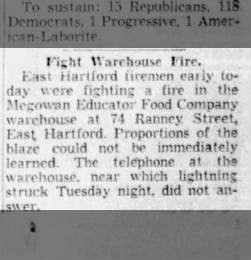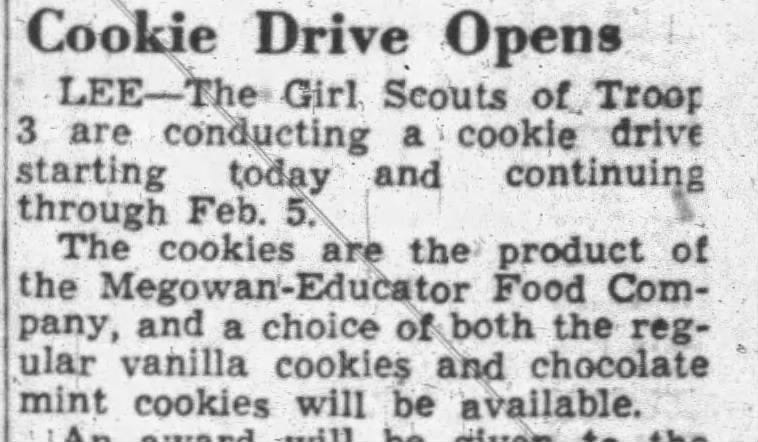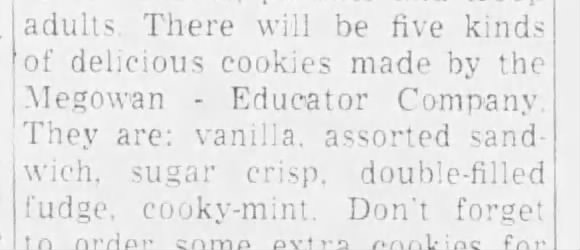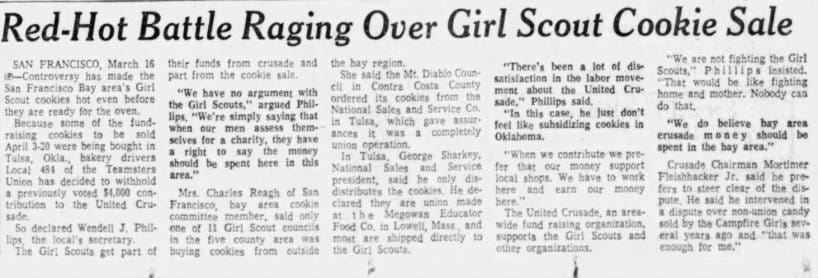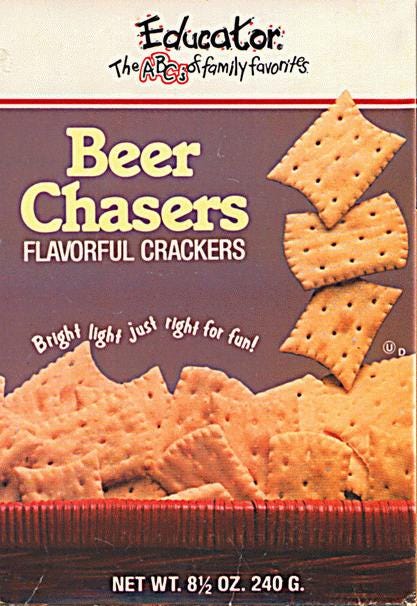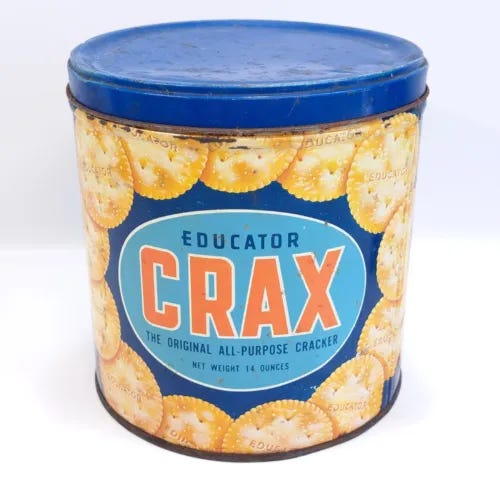Margaret and I have been on a long road trip, part of which has involved going down memory lane (mostly her memories). As many people do these days, when they start to wonder about something, the first check is to Google and find out. Sometimes, that gets one a very quick answer, and one moves on, but sometimes, nothing feels right and one keeps going until they think they might have a story.
This past week, Margaret and her brother were exploring and reminiscing in West Hartford and Hartford, Connecticut, and I was along the ride (or at times the designated driver and photographer). Margaret recalled that her Uncle Adam used to work for “Educator Cookies” and, I think, she sometimes got some product from him. So who has ever heard of “Educator Cookies”?! Almost noone it would appear.
Googling, initially does nothing. Hundreds of hits for cookies for teachers—cookie appreciations for teacher, teacher ideas for cookies, etc., etc. Well, maybe that was because I didn’t do a phrase search. However, searching for the phrase “educator cookies” did a little better—at least verifying that maybe there really was such a thing:
This from a sign that the owner of The Cape Cod Cookie Company posted 11 years ago. He reported his own search and found “there was a cookie and cracker company that looks like it folded in the early 80's but had been around since the turn of the century.” However, more significantly, someone responded to this and wrote:
Johnson Educator Crackers was sold to McGowan Educator and untimately (I am told Nabisco) the last surviving crackers were Beer Chaser. I an the gg-gson of the founder, my grandmother ran the company well into the 30s.
In turn, that person referenced a 2018 blog post “Nora Bird Barbour & the Educator Crackers”, which provided an origin story for “Educator Crackers” and a history up to 1919 or so.
How about Educator Crackers? They were invented by a New England dentist during the 1880s. …. Around the same time, an unsmiling man named Horace Fletcher was running around the country promoting “Fletcherism,” the practice of masticating food until it just ran down one’s throat.
The dentist, William L. Johnson, drew inspiration from Fletcher. He decided that Americans’ teeth were being ruined by too much soft food, especially easily-downed crackers made of white flour. He devised a new recipe whose ingredients were whole wheat flour and water, and which would require a great deal of chewing. Dr. Johnson’s family baked the crackers at home and he gave them away to his patients.
The dentist named them “Educator Crackers” because he hoped to educate people about nutrition and diet. Within a year, the crackers became so popular that he started to think about giving up dentistry and going into business.
He turned to his daughter who developed the business, and several other crackers. However, as the story there ended in 1919, it couldn’t explain for whom Uncle Adam worked.
Back to Google, but with the Johnson Cracker name to use, I came across the following article from the Boston Globe for October 3, 1920:
This is a more definitive history—locating the company in Boston, Massachusetts, but moving everything to Cambridge in 1919. It also suggests that the first management change occurred before 1920, as “the company’s president, Mr. E. Fred Cullen…has been directing the entire business of the corporation for the past seven years.”
Around this point, I switch gears and search the City Directories on Ancestry.com to find out where Uncle Adam may have worked in the late 1950’s, and I find that he was a route salesman working from “74 Ranney EH” which allows me to do Newspaper.com search and find the “Megowan Educator Food Company” mentioned in a 1946 Hartford Courant story!
Well, so I have Uncle Adam at an “Educator” company! And searching out more information became a lot easier with “Megowan” as a search term.
A site called Foodtimeline.org provided a number of points. A story from the Lowell Sunday Sun, November 10, 1963 (p. 26) picked up on movement to Lowell, Massachusetts:
In 1934, demand for Educator products increased to such a degree that additional capacity was installed in a large brick building located in Lowell which is the headquarters of his company today. In June 1937, Robert Lee Megowen became interested in the company and changed the name to Megowen Educator Food company. Possibly the greatest contribution made by Megowen Educator food company was the introduction of small packages of cookies wrapped in cellophane. After Mr. Megowen's death in 1954, the business was carried on by his on, William J. Megowen. In March 1962, Megowen- Educator food company was sold. In June 1962 the name was changed to Educator Biscuit Company, incorporated.
Missing from that story were couple earlier history points found by the Foodtimeline:
“A syndicate of New York and Boston bankers has purchased 30,000 shares of the new Johnson Educator Biscuit Co...The Johnson Educator Food Co., to succeed which Johnson Educator Biscuit Co. is being organized, was incorporated in 1902 in Massachusetts. The company produces about 140 varieties of crackers."
---"Johnson Educator Food Co. Financing," Wall Street Journal, June 25, 1923 (p. 10)…
"The Johnson Educator Biscuit Company of Cambridge, holding company of the Johnson Educator Food Company, petitioned in Federal District Curt for a reorganization under Section 77b of the Bankruptcy Act."
---"Files Bankruptcy Plea, Johnson Educator Biscuit Plans a Reorganization," New York Times, January 12, 1937…
"Through the consolidation of Star Biscuits of America, Johnson Educator Biscuit Co. and the Johnson Educator Food Co. a new biscuit group is being organized by Chicago and New England capital. The new company will serve the New England territory. Directors of the companies have approved a plan of reorganization which has been built around the Star Biscuit Co., of America, with which Johnson Educator has had contracts for the major portion of its output."
---"New Biscuit Group Formed For New England Area," Wall Street Journal, January 18, 1937 (p. 4)
Thus, it really appears that the the company had trouble making it out of the Depression, and Megowan picked up the pieces in 1937. Megowan appeared to last into the mid 1970’s, with the final sightings on Foodtimeline.com being articles in the Lowell Sun in January 1976: “Educator cookies are back in the area, according to Robert M. Brodsky, president of the new Educator Co. Inc, of Lawrence, after an absence of two years.” and then the death knell in 1980: “The Massachusetts Corporation database reports The Educator Biscuit Company as being registered June 3, 1937; involuntary dissolution July 7, 1980.”
Interestingly, to match where we started, the 1976 article did refer to Educator “cookies” rather than crackers or biscuits. Also, among the threads and clippings of store ads, etc., I learned that Educator was the manufacturer of Girl Scout cookies from sometime in late 1940’s through 1950’s, which would again match with Margaret associating her uncle with cookies:
[See WorthPoint for a 1950 box of cookies!']
The relationship made national news for a while in 1959, when one group of Teamsters withheld contributions to the Girl Scouts:
Sidelights
Some folks continued to mourn some Educator crackers, especially “Beer Chasers” (and to a lesser extent “Crax”). From a Reddit thread:
A cracker I used to love as a kid. Educator's Beer Chasers. Apparently the owner was PhD hence the company name. I found out they were manufactured in the next town over (Lowell, MA) from where I live now. Educator was bought by Nabisco around 1980 and Nabisco kept making Beer Chasers for a few more years then dropped them. They had a malty, salty taste and as a young kid, nothing was more fun than fitting the concave ends to the convex ones.
Finally, to end on a cultural literary note from a Lowell history blog:
In 1941, when he was 19 years old, [Jack] Kerouac wrote a short story titled “The Birth of a Socialist,” which is based on his short-lived job as a factory worker at the Megowan Educator Food Company at 27 Jackson Street (The business was also known as Educator Biscuit or “The Crax”—one product was “Beer Chasers” crackers. Passersby on Market Street could smell the latest batch of goods being baked.) He saw enough on the cookie-and-cracker production line to make him imagine a better way for the workers.





